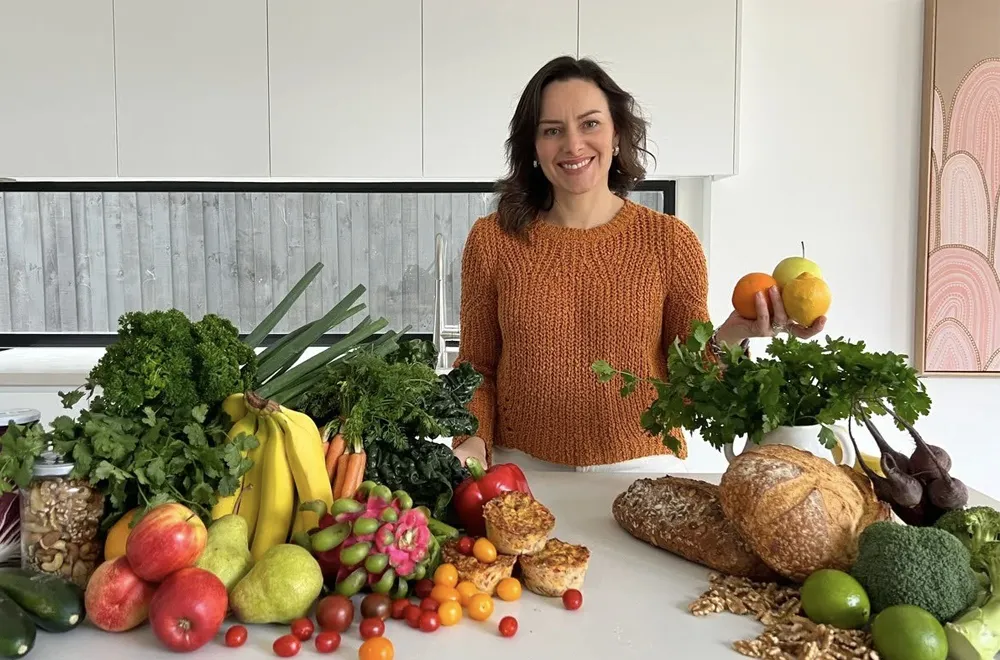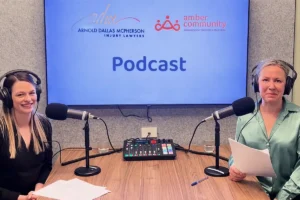Recovering from an injury or trauma is about more than just rest and rehabilitation, it’s about nourishing from the inside. The food you eat plays an important role in helping your body repair tissues, reduce inflammation, and support overall wellbeing during recovery.
To support the healing process, here are five important aspects to consider that will help you reach your recovery goals.
1. Protein: The Building Blocks of Recovery
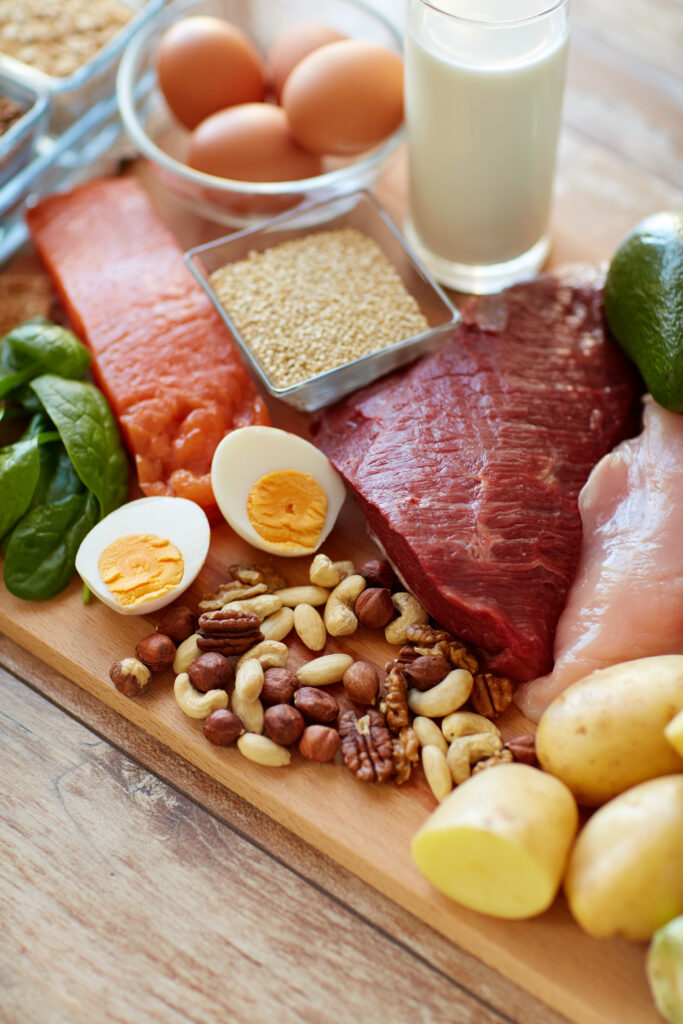
When you’re healing, your body’s demand for protein increases. Protein provides the amino acids needed to repair damaged tissue and rebuild muscle, bone, and tissues. Think of these like the building materials your body uses to repair and strengthen itself.
Good sources include lean meats, poultry, fish, eggs, dairy, legumes, tofu, nuts, and seeds. If appetite is low, smoothies made with yoghurt or protein powder added can be a gentle way to boost intake
2. Omega-3 Fats: Nature’s Anti-Inflammatories
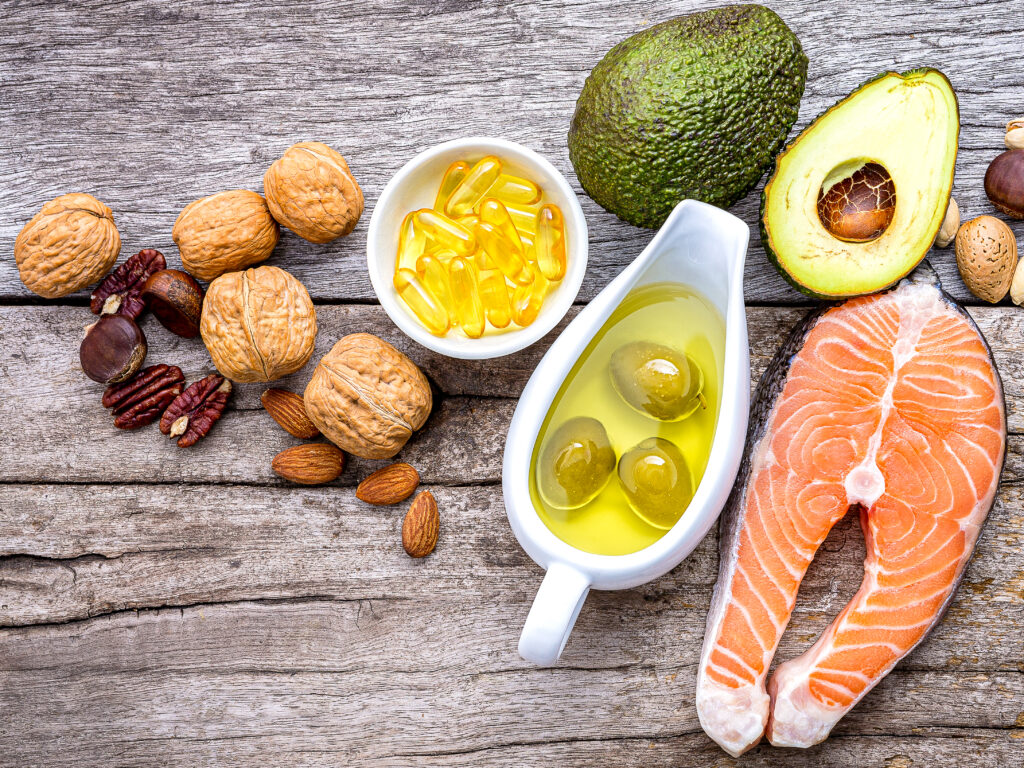
Injury often brings with it inflammation in the body, this is a normal part of the healing process, but it can linger and become chronic, or ongoing, if not balanced. Omega-3 fats found in oily fish (like salmon, sardines, or mackerel), flaxseeds, chia seeds, and walnuts help to manage inflammation and support joint health.
3. Fruits, Vegetables, and Whole Foods: Micronutrient Powerhouses
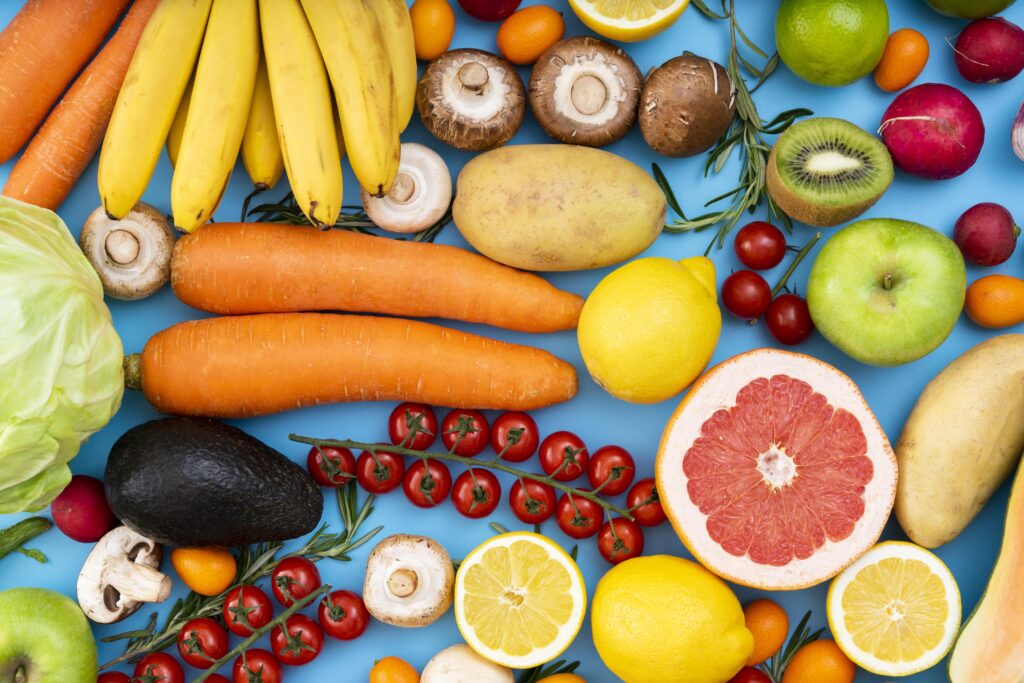
A colourful plate means a wider range of vitamins, minerals, and antioxidants, which are the beneficial Phyto (plant) chemicals found in plant-based foods, these are all crucial for recovery. Vitamin C supports collagen formation, zinc helps with wound healing, and antioxidants from colourful fruits and vegetables help protect cells from stress.
Foods rich in Fibre like fruits, vegetables, legumes, and whole grains also nourish the gut microbiome, the community of beneficial bacteria that influence everything from immunity to mood.
4. The Gut–Brain Connection: Healing Mind and Body
Recovery isn’t only about the body, mindset matters too. Research from Professor Felice Jacka and the Food & Mood Centre at Deakin University highlights how diet quality is linked to mental health and resilience.
A balanced diet rich in whole foods, fibre, and healthy fats supports gut health, which in turn can positively influence mood and motivation, both are key for rehabilitation and maintaining a positive approach to the recovery process.
5. Movement and Nutrition: Working Together
While nutrition lays the foundation, movement helps bring recovery to life. Following the guidance of your doctor, physiotherapist, or exercise physiologist, gentle and progressive movement improves circulation, supports digestion, and encourages muscle repair. Even small, regular movements, such as short walks or prescribed exercises, can make a difference in how effectively your body uses nutrients for healing.
Recovery from injury or trauma requires a multi-faceted approach. By combining a nutrient-dense diet, adequate protein, anti-inflammatory fats, and movement, you give your body and mind the best possible conditions to heal and regain strength.
For personalised advice, always seek guidance from an Accredited Practising Dietitian or healthcare professional familiar with your medical history and treatment plan.
This article was generously written for Arnold Dallas McPherson Injury Lawyers by an accredited practicing dietitian:
Marnie Buller (Connect with Marnie on LinkedIn)
Accredited Practising Dietitian
Life Diet & Nutrition


